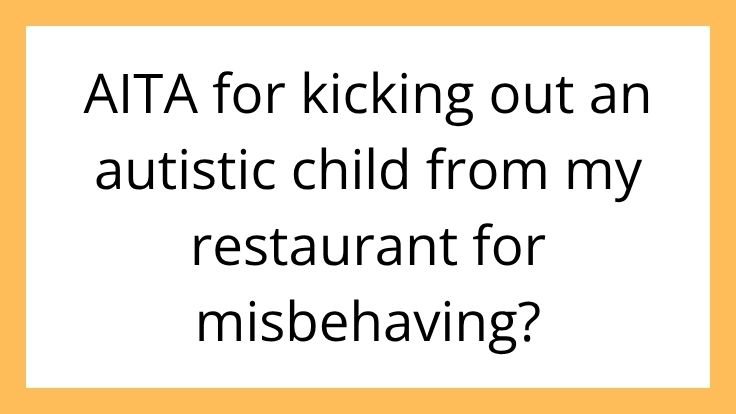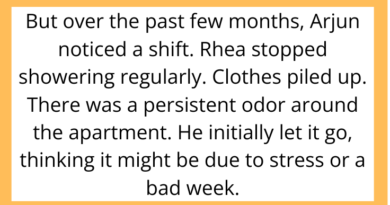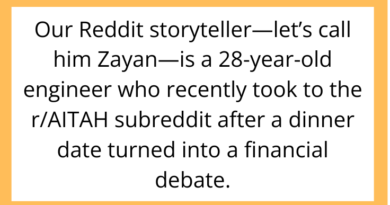AITA for Kicking Out an Autistic Child from My Restaurant for Misbehaving?
Hi, I’m Gina. I’m 55 years old and have been running a family-owned pizzeria in upstate New York for the past few decades alongside my husband. We’ve seen it all—rude customers, incredible regulars, sweet families, and lately… a concerning rise in entitled behavior, especially involving children.
What used to be basic manners—like not blasting sound from personal devices in public—has somehow become a debate. And after one especially disruptive incident, I found myself asking: Was I the bad guy for kicking a misbehaving child (who happened to be autistic) out of my restaurant?
Let me break it down.
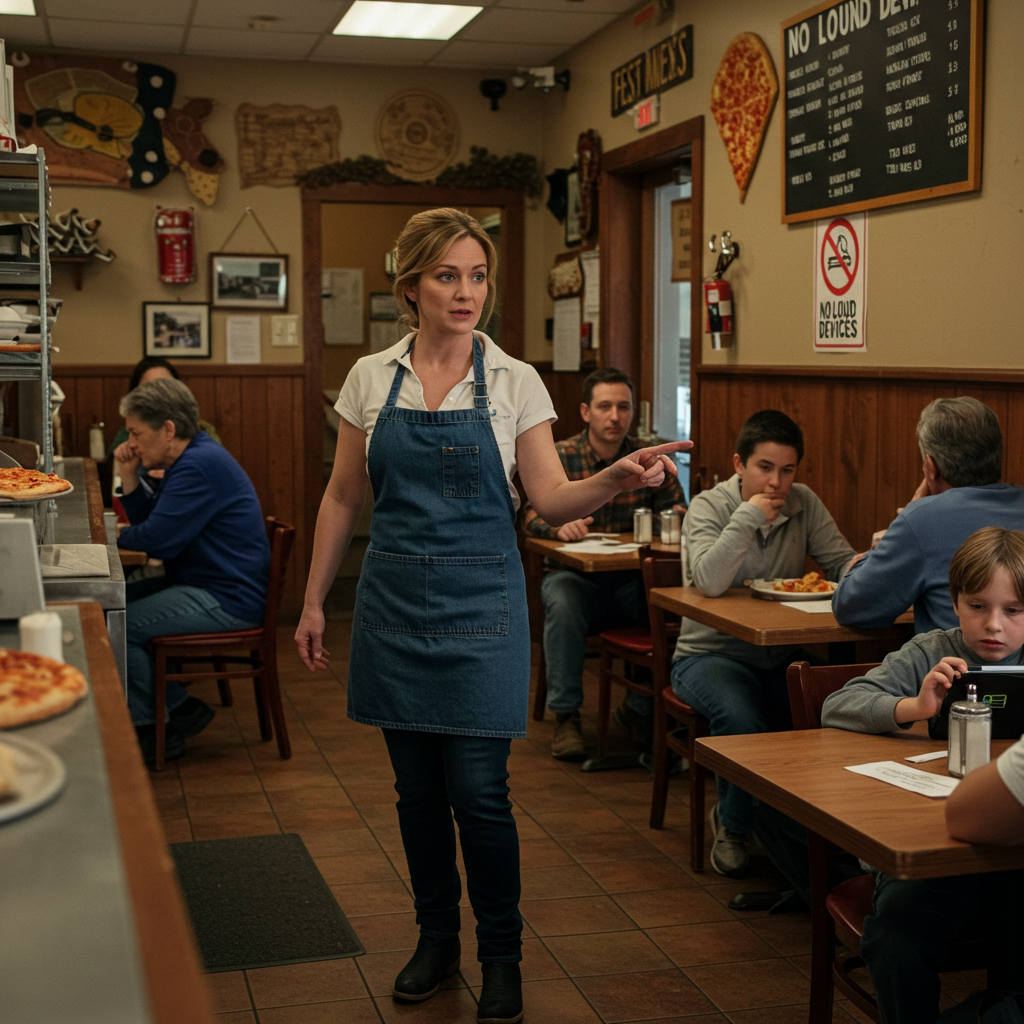
We Enforce Simple Rules—For Everyone’s Sake
Our restaurant has one very basic rule when it comes to personal electronics: No speakerphone calls, no loud music, and no audio from tablets or phones unless you’re using headphones.
Before the pandemic, we never even had to say this out loud. But recently, more and more customers act like this is a shocking or unreasonable expectation. Especially some parents, who seem to feel that any request for quiet is a personal attack on their parenting.
So yes—we enforce it. Politely, but firmly. We want our guests to enjoy their meals, not feel like they’re dining in the middle of a YouTube Kids playlist.
The Incident That Sparked the Controversy
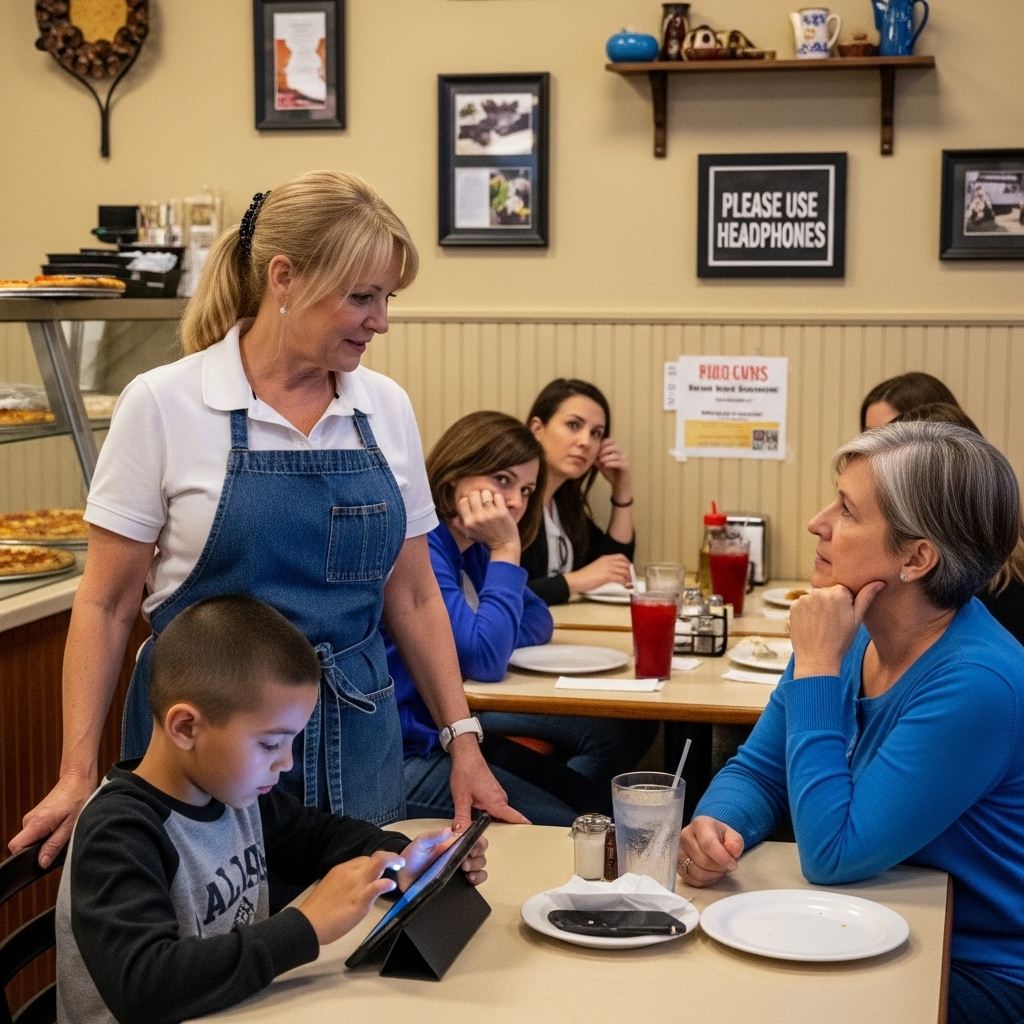
A few weeks ago, a woman came in with her 9-year-old son. He had two devices going at full volume—cartoons on a tablet, TikTok on a phone. I asked the mother if she could please either use headphones or mute the devices. Her response?
“He has ADHD and autism. He needs this to sit still.”
I suggested headphones again. She replied that he “doesn’t like to wear them.” While I understand that kids on the spectrum have sensory preferences, this was disturbing the entire restaurant. I politely reiterated that she had to follow the rule, regardless of circumstance.
She begrudgingly turned the volume down—but the real trouble came later.
The Disruption Escalated: Banging, Screaming, Running

Ten minutes later, I was in the kitchen when I heard loud banging. I came out to find the boy slamming his fists on the table, while his mother watched silently. It felt like he was waiting for her to intervene—but she did nothing.
Soon after, the boy got up and started running around the restaurant, punching chairs and tables, knocking over salt shakers, and startling other customers. A man nearby finally snapped:
“Control your kid or I will!”
At that point, the mom launched into a monologue about how “autistic children deserve to be in public spaces.” She accused me of discrimination and claimed it was “illegal” to ask her to leave.
My husband boxed up her food and told her, bluntly, to leave. She left, shocked and furious.
Autism Isn’t the Issue—Entitlement Is
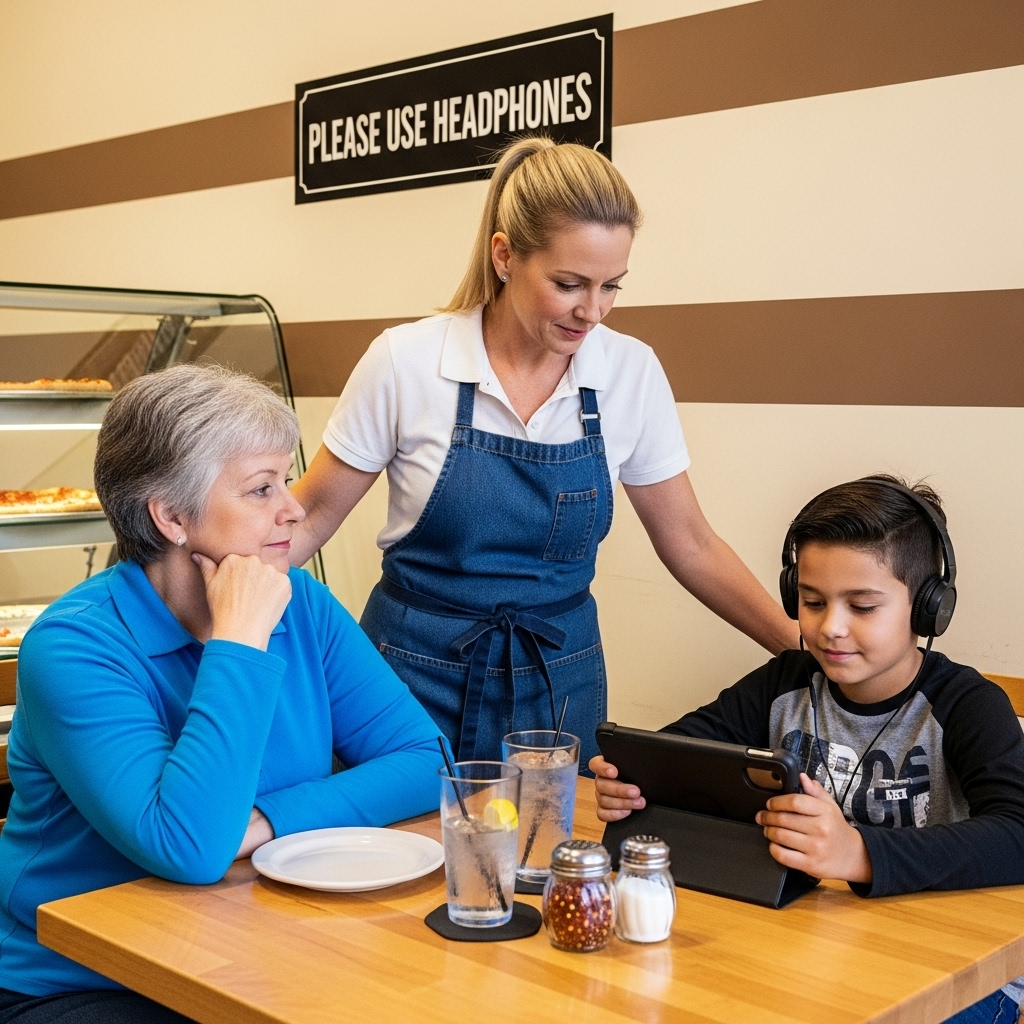
Let me be crystal clear: I love children. We raised five of them—including one with special needs. I fully support inclusivity and accessibility. But there’s a difference between understanding someone’s challenges and accepting disruptive, unsafe behavior in a shared public space.
This wasn’t about autism.
This was about a parent refusing to redirect, guide, or remove her child when he became disruptive and put others’ comfort and safety at risk.
And the truth is, if your child needs a specific environment to stay calm (like headphones, quiet spaces, or preferred seating), it’s your responsibility to make sure those accommodations are in place—or to avoid environments that might trigger meltdowns.
Other Parents Weighed In—and They Agree
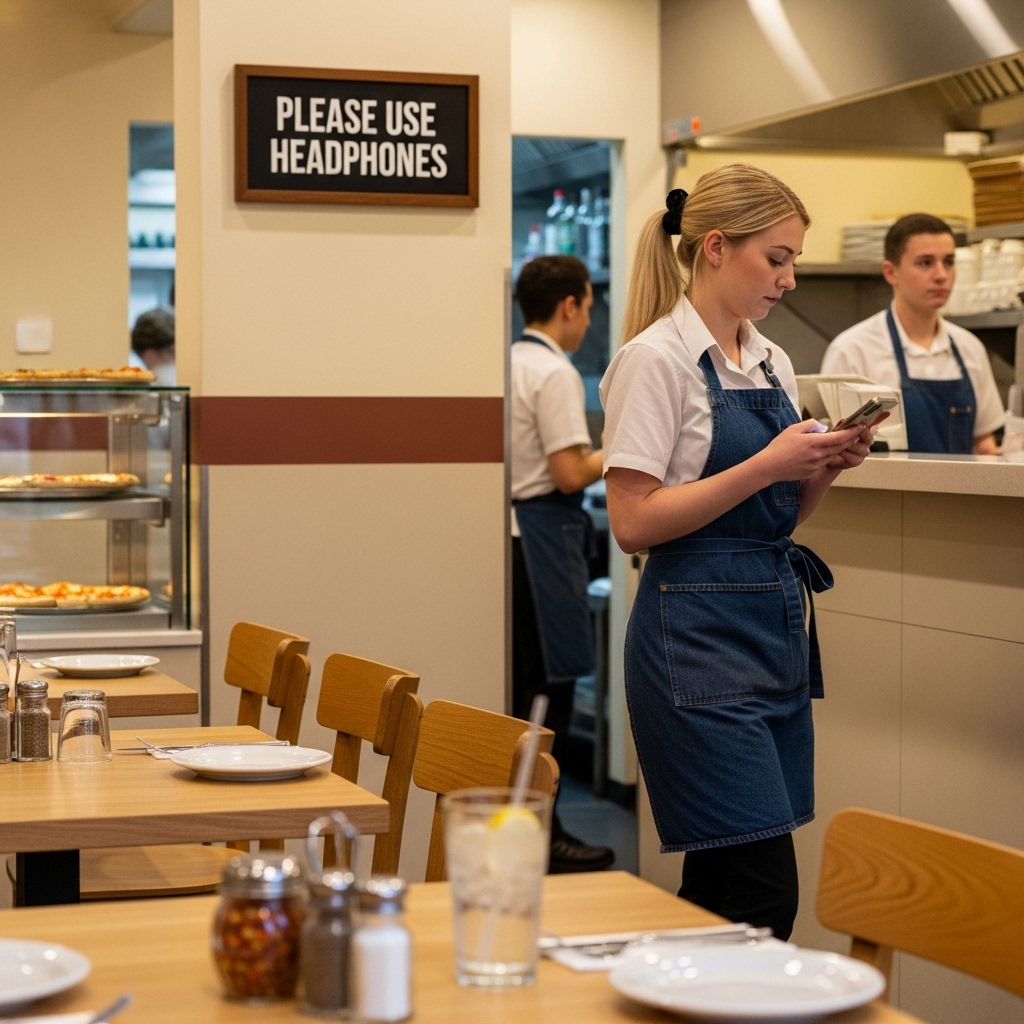
Reddit exploded with support after I posted my story in the AITA subreddit. Many users shared stories of their own neurodiverse children and how they handled similar situations:
“I have an autistic son. When he was younger and couldn’t handle restaurants—we simply didn’t go out to eat. We waited until he could cope. He’s 24 now and not traumatized by missing a few meals out.”
Others pointed out something I hadn’t even thought of:
“You know who else probably struggled when that boy was screaming and running around? Another autistic person in your restaurant who was doing everything right—using coping tools, managing their sensory triggers—only to have their experience ruined.”
That hit me hard. This isn’t just about accommodating one person. It’s about creating an environment that’s respectful to everyone, including other neurodiverse individuals who might find chaos just as overwhelming.
Is the Real Problem “Bad Parenting”?

The overwhelming consensus online was: NTA (Not The A*hole).
And it’s not because people lack compassion for autism or ADHD. Quite the opposite—many commenters are parents or individuals with those diagnoses themselves. But what they couldn’t accept was the weaponization of those labels to excuse any and all behavior.
There’s a difference between supporting a child with special needs and refusing to set boundaries. The latter isn’t inclusivity—it’s irresponsibility.
So… AITA for Asking Them to Leave?
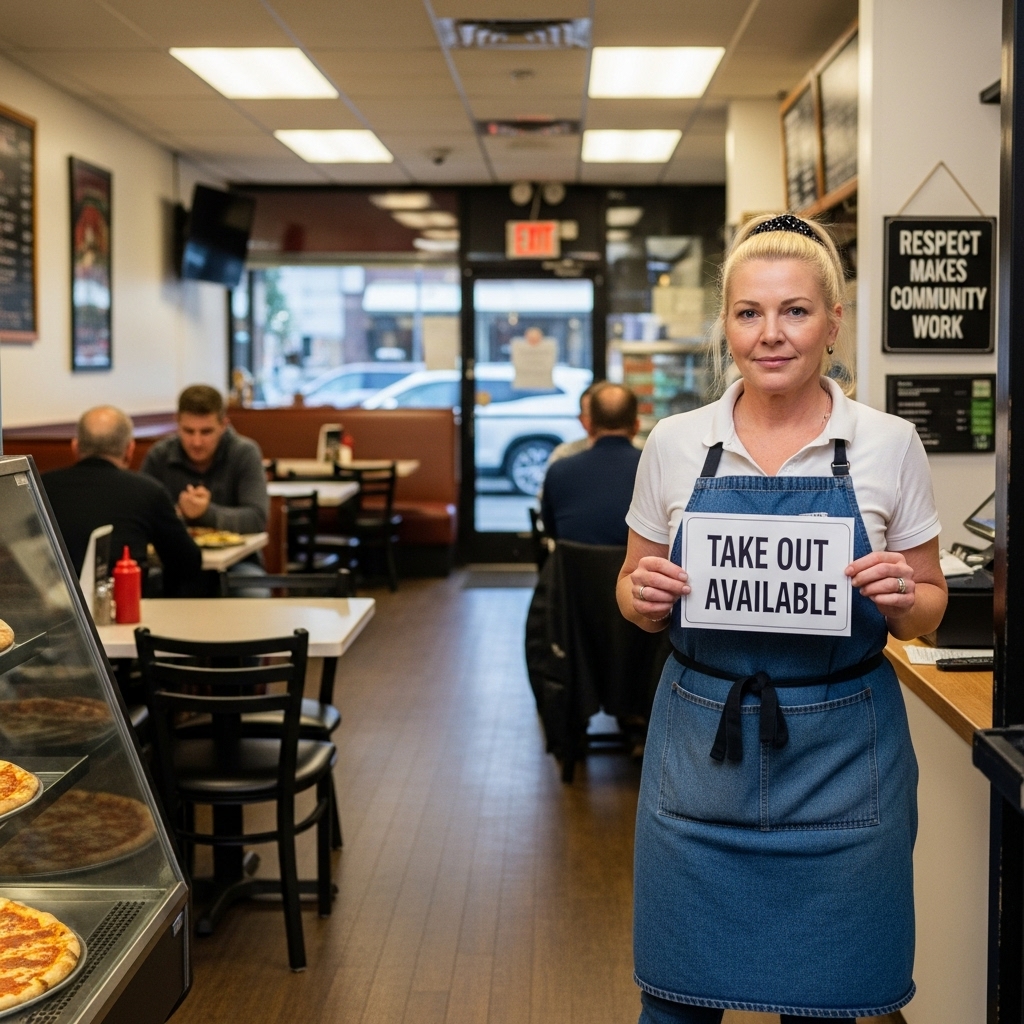
No. Not even a little bit.
Public spaces, including restaurants, come with shared social norms. We can—and should—make accommodations where reasonable. But when behavior becomes disruptive, destructive, or unsafe, no one’s diagnosis gives them immunity from consequences.
What if that boy had tripped someone? Or gotten hurt himself? What if he’d destroyed something expensive or knocked food into someone’s lap?
Sometimes, being a good parent means acknowledging limitations. If your child needs a device to stay regulated, then bring headphones. If they can’t tolerate sitting still in a restaurant yet, consider takeout. Or wait until they’re ready.
That’s not exclusion. That’s being considerate.
Respect Is a Two-Way Street
I’ll continue welcoming families. I’ll continue enforcing our rules. And I’ll always strive to treat everyone—kids, adults, neurodivergent or not—with kindness and fairness.
But I won’t apologize for asking guests to respect the space we work so hard to create.
And if that makes me “the a**hole,” then so be it.
Read more stories like this here
